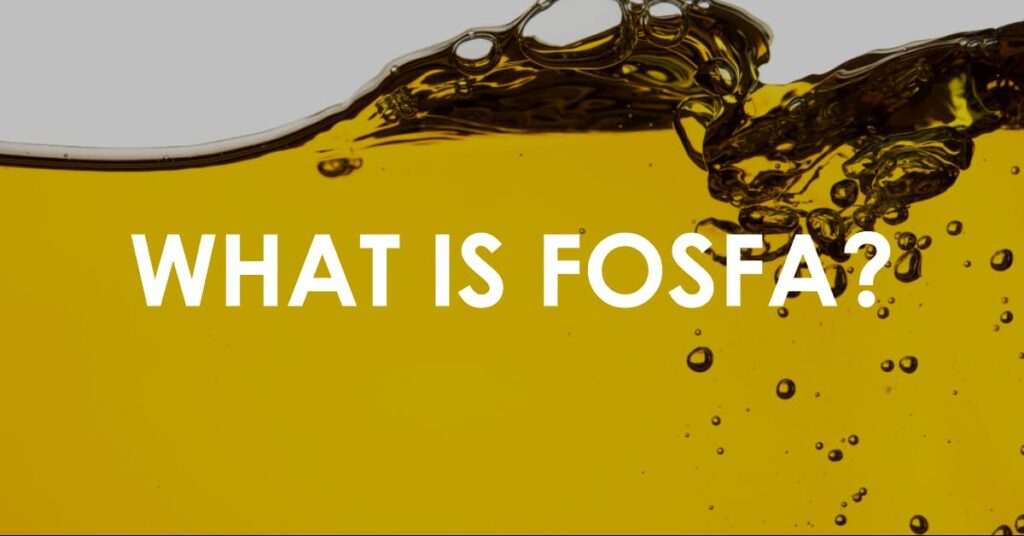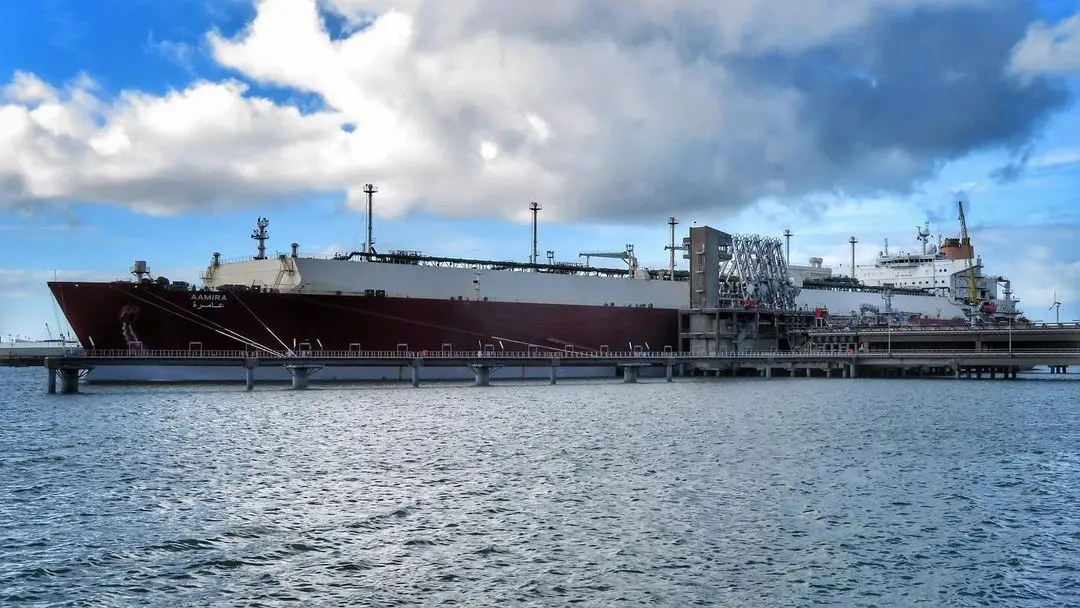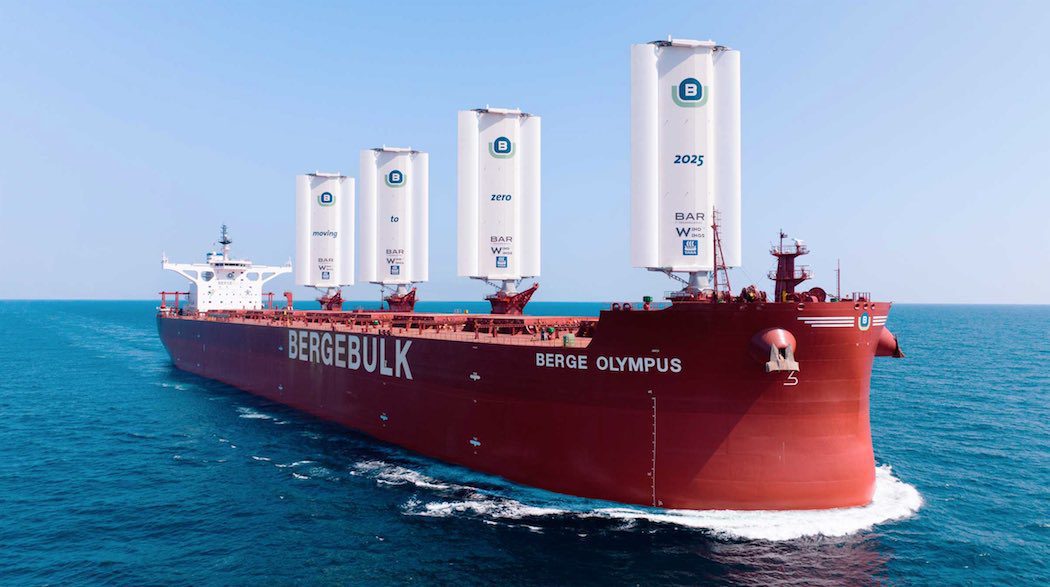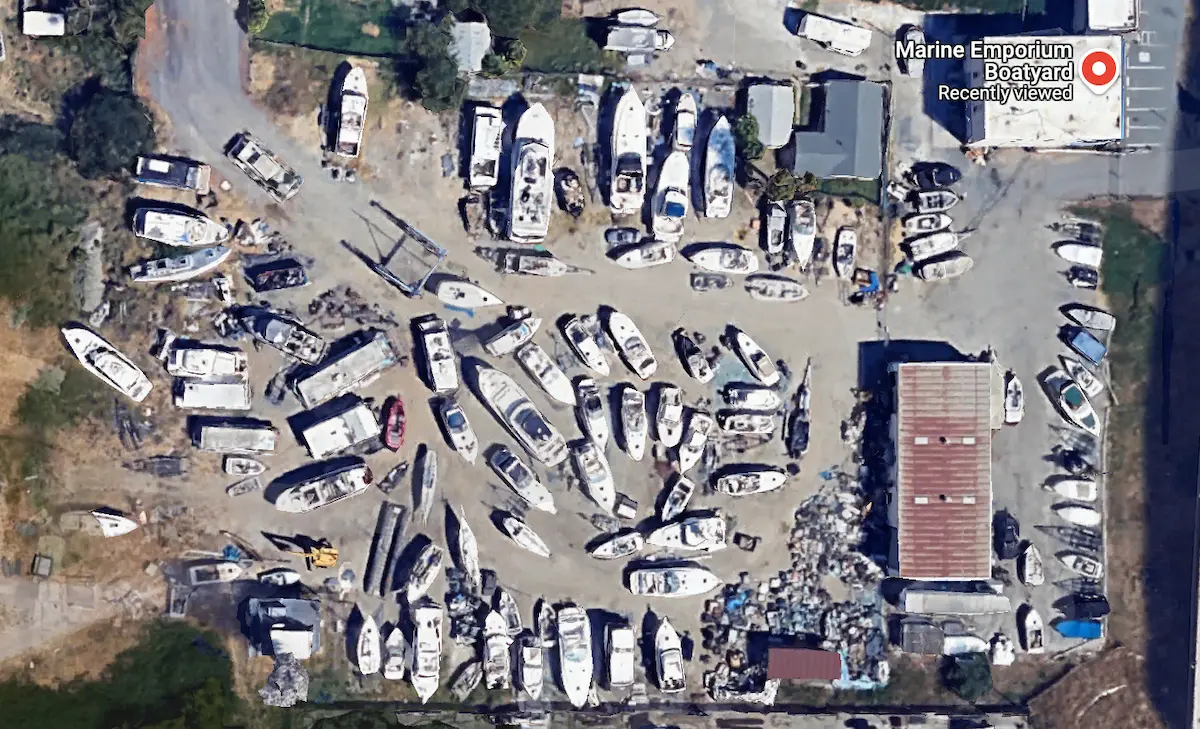The Federation of Oils, Seeds and Fats Associations (FOSFA) is an international trade organization that facilitates and supports the global trading and shipping of vegetable and animal oils and fats, oilseeds, and their derivatives.
Established in 1968, FOSFA International operates on behalf of its members and provides standard contract forms and supporting services that are the foundation for fair and transparent global free trade in oils, oilseeds, and fats.
FOSFA International is a trade federation that serves communities in the United Kingdom and around the world. Its membership includes producers, traders, brokers, and other professionals involved in the oils, seeds, and fats industry.
FOSFA International’s focus is on promoting and maintaining international trade in these products through the provision of quality and standards, business operations, technical services, governance, and industry relations.

Key Takeaways
- FOSFA International is an international trade organization that supports the global trading and shipping of vegetable and animal oils and fats, oilseeds, and their derivatives.
- FOSFA International operates on behalf of its members and provides standard contract forms and supporting services that are the foundation for fair and transparent global free trade in oils, oilseeds, and fats.
- FOSFA International’s focus is on promoting and maintaining international trade in oils, seeds, and fats through the provision of quality and standards, business operations, technical services, governance, and industry relations.
Fosfa International
Fosfa International is a global trading organization that facilitates and supports the trading and shipping of vegetable and animal oils and fats, oilseeds, and their derivatives. It was incorporated in 1968 and has been assisting global trading since 1971.
Fosfa International is a network of members that includes producers, traders, brokers, shippers, and analysts. It operates on behalf of its members and provides standard contract forms and supporting services that are the foundation for fair and transparent global free trade in oils, oilseeds, and fats.
The organization is headquartered in London, United Kingdom, and has a global presence with members from around the world. Fosfa International is an international trade organization that regulates legal contracts in the oil, seeds, and fats industry. It serves communities in the United Kingdom and beyond.
Fosfa International provides a range of services to its members, including arbitration, trade policy, and technical support. The organization also offers training and education programs to help its members stay up-to-date on the latest industry practices and regulations.
Overall, Fosfa International is a neutral and knowledgeable organization that plays a crucial role in facilitating and supporting global trading in oils, oilseeds, and fats.
Membership
FOSFA International offers membership to individuals, companies, and organizations that are involved in the trading of oils, seeds, and fats. Becoming a member of FOSFA provides access to a comprehensive range of contracts that provide standard trading terms.
Benefits
FOSFA membership offers several benefits such as unlimited access to a comprehensive range of contracts, which provide standard trading terms. Members also have access to the FOSFA Members Directory, which is an alphabetical listing of all member companies and their FOSFA representatives. This directory enables individuals to directly contact other members of the community for networking and business purposes.
In addition to these benefits, FOSFA members also receive discounts on educational courses that help them understand the trade better. According to a survey, 62% of members said that FOSFA educational courses helped them understand the trade better.
Application Process
To become a FOSFA member, interested individuals must complete the relevant online application form. They will need the support and endorsement of two current FOSFA members whose details should be added to the referees section of the application form. The Federation can assist if an applicant needs help.
The FOSFA rules state that an arbitrator must be a named active representative of a company that is a member of the Federation in one of the following categories: Trading Full Broker Full Non-Trading. An individual who would like to become a FOSFA arbitrator would generally seek membership in the Non-Trading category in their own name.
Overall, FOSFA membership provides valuable contract and networking information to individuals, companies, and organizations involved in the global trade of oils, seeds, and fats.
Trading
When trading with FOSFA contracts, there are rules and procedures that must be followed to ensure a fair and trustworthy transaction.
Rules
FOSFA contracts provide standard contract forms that are used as the foundation for global free trade in oils, oilseeds, and fats. These contracts are created and updated by the trade, for the trade, and are considered fair and trustworthy by buyers, sellers, and intermediaries.
There are several types of FOSFA contracts, including CIF (cost, insurance, and freight), FOB (free on board), and C&F (cost and freight). Each contract has its own set of rules and procedures that must be followed.
For example, under a CIF contract, the seller is responsible for arranging and paying for the transportation and insurance of the goods until they reach the agreed-upon destination. On the other hand, under an FOB contract, the buyer is responsible for arranging and paying for the transportation and insurance of the goods once they leave the seller’s premises.
Procedures
In addition to the rules outlined in the FOSFA contracts, there are also procedures that must be followed in the event of a dispute. FOSFA provides an impartial resolution service to help parties resolve disputes that may arise during the trading process.
The procedures for resolving a dispute typically involve appointing an arbitrator or a panel of arbitrators to hear both sides of the case and make a decision. The arbitrator’s decision is usually binding, meaning that both parties must abide by it.
Overall, when trading with FOSFA contracts, it is important to follow the rules and procedures outlined in the contract to ensure a fair and trustworthy transaction. By doing so, buyers, sellers, and intermediaries can have confidence in the trading process and avoid potential disputes.
Contracts
FOSFA International is a trade federation that operates on behalf of its members. It provides standard contract forms and supporting services that are the foundation for fair and transparent global free trade in oils, oilseeds, and fats. The contracts are created and updated by the trade, for the trade, and are widely recognized as fair and trustworthy.
FOSFA Contracts
FOSFA trade contracts are designed to keep global trade and transportation simple and reliable. They provide standard trading terms to ensure the smooth trade of oils, seeds, and fats across the globe. Buyers, sellers, and intermediaries know that FOSFA contracts are fair and trustworthy.
The contracts are used by over 850 members in 75 countries, and they cover a wide range of trade activities, including buying, selling, and shipping of oils, oilseeds, and fats. FOSFA contracts are used to trade a variety of commodities, including soybean oil, sunflower oil, palm oil, and many others.
Standard Contract Forms
FOSFA provides standard contract forms that are used by traders worldwide. These forms provide a framework for the negotiation and execution of contracts, and they are widely recognized as fair and trustworthy.
The standard contract forms cover a wide range of trade activities, including buying, selling, and shipping of oils, oilseeds, and fats. They are designed to be flexible and can be adapted to meet the specific needs of individual traders.
The forms are available in both electronic and paper formats, and they can be customized to include specific terms and conditions. FOSFA also provides guidance on the use of the forms and offers support to traders who need assistance in negotiating and executing contracts.
In summary, FOSFA contracts are widely recognized as fair and trustworthy, and they provide a framework for the negotiation and execution of contracts in the global trade of oils, oilseeds, and fats. The standard contract forms are flexible and can be adapted to meet the specific needs of individual traders.
Arbitration
FOSFA provides impartial arbitration services to resolve disputes efficiently and fairly. The FOSFA arbitration service offers a system to resolve contractual matters in dispute via a neutral, impartial body and peer group of adjudicators.
Arbitration Services
FOSFA provides several versions of the arbitration rules, including the FOSFA Rules of Arbitration and Appeal, which is used for most disputes, and the Rules for Small Claims Single Tier, where the dispute is heard by a sole arbitrator, and there is no appeal. Members of FOSFA can access the Rules of Arbitration and Appeal, Small Claims Single Tier Rules of Arbitration, and Rules of Arbitration for Brokerage, Commission, and Interest by logging in. Non-members can purchase the documents for a fee of £15 per document. Members can request previous versions of the documents by contacting FOSFA.
Dispute Resolution
FOSFA’s Guide to Arbitrations and Appeals provides assistance to parties in disputes, arbitrators, and tribunals. It sets out the responsibilities of the various elements associated with dispute resolution, including those of the Federation. The impartial resolution of trading and shipping disputes is FOSFA’s primary objective.
FOSFA arbitration is a process for resolving disputes between parties involved in the trade of agricultural commodities. The process is overseen by the FOSFA International Arbitration Board (FIAB), which is made up of experienced arbitrators who are experts in the industry. The arbitrators are appointed by the parties and are required to act impartially and independently. The arbitration process follows the Arbitration Act 1996, which sets out the legal framework for arbitration in the United Kingdom.
In conclusion, FOSFA provides impartial arbitration services to resolve disputes efficiently and fairly. The FOSFA arbitration service offers a system to resolve contractual matters in dispute via a neutral, impartial body and peer group of adjudicators. The arbitration process follows the Arbitration Act 1996, which sets out the legal framework for arbitration in the United Kingdom.
Products and Services
FOSFA International provides a range of products and services to support the global trading and shipping of vegetable and animal oils, oilseeds, and their derivatives. The following are some of the key products and services offered by FOSFA.
Oils and Fats
FOSFA provides standard contract forms and supporting services that are the foundation for fair and transparent global free trade in oils, oilseeds, and fats. The organization also offers arbitration services to help resolve disputes that may arise in the course of trading.
Educational Courses
FOSFA offers a range of educational courses to help individuals and organizations develop their understanding of the trade in oils, oilseeds, and fats. The courses cover a variety of topics, including the carriage of oils and fats in bulk, the analysis of oils and fats, and the trading and shipping of vegetable and animal oils and fats.
The educational courses offered by FOSFA are designed to provide participants with a comprehensive understanding of the trade in oils, oilseeds, and fats. The courses are taught by experienced professionals who have extensive knowledge of the industry and are able to provide participants with practical insights and advice.
Overall, FOSFA International is committed to promoting fair and transparent trade in vegetable and animal oils and fats. The organization’s products and services are designed to support this goal, providing traders and shippers with the tools and knowledge they need to succeed in this complex and ever-evolving industry.
Quality and Standards
Standards
FOSFA is a trade federation that provides standard contract forms and supporting services that are the foundation for fair and transparent global free trade in oils, oilseeds, and fats. By joining FOSFA International, members agree to abide by the FOSFA Rules and Regulations, which maintain the standards, values, and practices of the Federation. The role and purpose of these rules and regulations are to provide members with clear guidance and information about how the Federation is organized and the procedures and processes of its governance.
Quality
FOSFA is committed to ensuring that the oils, oilseeds, and fats traded by its members meet the highest quality standards. The Federation has established a Member Analysts Scheme, which provides for the accreditation of laboratories to carry out analyses of oils, oilseeds, and fats in accordance with FOSFA methods. The Technical Manual, which consists of General Information, an introduction, and two further parts, one for each commodity section, includes all the Mandatory and Optional method references, together with the details of those methods which are specific to FOSFA.
FOSFA also maintains a List of Acceptable Previous Cargoes, which provides guidance on the types of previous cargoes that are acceptable for the carriage of oils, oilseeds, and fats. The List of Acceptable Previous Cargoes includes restrictions beyond the Immediate Previous Cargo, such as the prohibition of leaded products as the three previous cargoes and the prohibition of Ethylene Dichloride and Styrene Monomer (both of which are on the FOSFA Banned List) as the three previous cargoes in organic coated tanks, or as the last cargo in stainless steel and inorganic coated tanks.
In conclusion, FOSFA is committed to maintaining the highest quality standards in the trade of oils, oilseeds, and fats. By adhering to the FOSFA Rules and Regulations and utilizing the Member Analysts Scheme and List of Acceptable Previous Cargoes, FOSFA members can ensure that they are trading in a fair and transparent manner, while also meeting the highest quality standards.
Business Operations
Fosfa’s business operations encompass all the activities that the company engages in to generate revenue. The company operates production units in Germany, Czech Republic, and Kazakhstan, and creates revenues globally in over 80 countries.
Shipping
Fosfa’s shipping operations are an essential aspect of the business. The company is involved in the transportation of oils, oilseeds, and fats. Fosfa has a vast network of brokers and transporters that help to ensure the safe and timely delivery of goods. The company works with a range of different transport modes, including ships, trucks, and trains, to move goods from one location to another.
Supply Chain
Fosfa’s supply chain operations are another critical aspect of the business. The company works with suppliers and partners to ensure the smooth flow of goods and services. Fosfa has established relationships with a range of different suppliers, including farmers, processors, and manufacturers, to ensure a reliable supply of raw materials. The company also works with brokers and other intermediaries to help manage the supply chain and ensure that goods are delivered on time and at the right price.
Overall, Fosfa’s business operations are designed to ensure that the company can generate sufficient revenues to cover expenses and earn a profit for its owners. The company’s commitment to service excellence is a pillar of its operations, and it inspires and unites the people at Fosfa to embrace every opportunity to serve a purpose, share knowledge, and create new solutions.
Technical Services
FOSFA provides technical services to its members to ensure that they have access to consistent standards for trading oils, seeds, and fats. These services are available to all members of the supply chain, including producers, traders, and shippers.
One of the key technical services provided by FOSFA is the Member Analysts Scheme. This scheme ensures that all analysis of oils, seeds, and fats is carried out by accredited laboratories. These laboratories are regularly audited to ensure that they meet FOSFA’s strict standards for accuracy and impartiality.
FOSFA also provides guidance on the acceptable previous cargoes for oils, seeds, and fats. This information is essential for traders and shippers to ensure that they comply with international regulations and standards. The list of acceptable previous cargoes is regularly updated to reflect changes in regulations and industry best practices.
In addition, FOSFA provides guidance on the certificates and documents required for trading oils, seeds, and fats. This guidance covers all aspects of the trading process, from the initial contract to the final delivery. FOSFA’s guidance ensures that all parties involved in the trading process have a clear understanding of their obligations and responsibilities.
Overall, FOSFA’s technical services provide a vital framework for fair and transparent global free trade in oils, oilseeds, and fats. By ensuring consistent standards and providing guidance on regulations and best practices, FOSFA helps to promote trust and confidence in the trading process.
Governance
FOSFA International is committed to improving its governance systems, processes, and communications. The organization uses its knowledge and expertise to constantly improve its governance practices.
Elected Council
FOSFA International is governed by an elected Council, which is composed of representatives from member companies. The Council is responsible for setting policies and making decisions that affect the organization and its members. The Council meets regularly to discuss issues related to the industry and to make decisions that will benefit all members.
Policies
FOSFA International has developed a set of policies that guide its operations and decision-making processes. These policies ensure that the organization operates with independence and impartiality. FOSFA International’s policies are designed to promote transparency, accountability, and ethical behavior.
FOSFA International’s policies cover a wide range of topics, including membership, dispute resolution, and contract administration. The organization’s policies are reviewed regularly to ensure that they remain relevant and effective.
FOSFA International is committed to upholding the highest standards of governance and to ensuring that its members have confidence in its operations. The organization is constantly striving to improve its governance practices to meet the evolving needs of its members and the industry as a whole.
Industry Relations
The Federation of Oils, Seeds and Fats Associations (FOSFA) has established strong industry relations with kindred associations and peer groups. These relationships are vital to promote and protect the interests of the oilseed, oil, and fat industries worldwide.
Kindred Associations
FOSFA maintains close ties with several kindred associations, including the International Association of Seed Crushers (IASC), the International Association of Operative Millers (IAOM), and the International Association of Plant Bakers (IAPB). These associations share common interests in the processing and trade of agricultural commodities and work together to promote fair trade practices and quality standards.
Peer Group
FOSFA is a member of the International Chamber of Commerce (ICC) and the International Maritime Organization (IMO). These organizations provide a platform for FOSFA to engage with other industry leaders and policymakers on issues such as trade regulations, shipping practices, and sustainability.
FOSFA also collaborates with other trade associations such as the National Oilseed Processors Association (NOPA) and the European Biodiesel Board (EBB) to promote the interests of the oilseeds and biodiesel industries.
Overall, FOSFA’s industry relations with kindred associations and peer groups are critical to its mission of facilitating and supporting global trading and shipping of vegetable and animal oils and fats, oilseeds, and their derivatives.
Additional Information
Publications
FOSFA International provides a variety of publications for its members. These publications cover topics such as contracts, arbitration, and trade rules. FOSFA publishes a monthly newsletter, which provides updates on the latest industry news and events. Additionally, FOSFA publishes a quarterly magazine, which includes articles on industry trends, market analysis, and regulatory developments. Members can access these publications through the FOSFA website.
Cookies
FOSFA International uses cookies on its website. Cookies are small text files that are stored on a user’s device when they visit a website. Cookies are used to improve the user experience and to provide personalized content. FOSFA uses cookies to track user behavior on its website, such as which pages are visited and how long users spend on each page. This information is used to improve the website and to provide better content for users. Users can choose to disable cookies in their web browser settings. However, this may affect the functionality of the FOSFA website.
Overall, FOSFA International provides a wealth of resources for its members, including publications and a user-friendly website. By using cookies, FOSFA is able to provide a personalized experience for its users.
Frequently Asked Questions
What is Fosfa 80?
Fosfa 80 is a standard contract form used for the sale and purchase of crude palm oil. It is one of the most commonly used Fosfa contracts in the industry. Fosfa 80 outlines the terms and conditions of the sale, including the quality and quantity of the product, delivery and payment terms, and any other relevant details.
What is the Fosfa Acceptable List?
The Fosfa Acceptable List is a list of previous cargoes that are deemed acceptable for use in the transportation of vegetable oils and fats. It is used to ensure that the previous cargo in a tanker or container is not harmful to the quality of the oil or fat being transported. The list is updated regularly and can be found on the Fosfa website.
What are the Fosfa Sampling Rules?
The Fosfa Sampling Rules are a set of guidelines used to ensure that representative samples of vegetable oils and fats are taken during the loading and discharge of tankers or containers. The rules specify the number of samples to be taken, the method of sampling, and the equipment to be used. The samples are then tested to ensure that the product meets the required quality specifications.
What is Fosfa 22?
Fosfa 22 is a standard contract form used for the sale and purchase of sunflower seed oil. It is similar to Fosfa 80 and outlines the terms and conditions of the sale, including the quality and quantity of the product, delivery and payment terms, and any other relevant details.
What is the difference between Fosfa and Gafta?
Fosfa and Gafta are both trade associations that represent the interests of the global trade in grains, oilseeds, and vegetable oils. Fosfa focuses specifically on the trade in oils, seeds, and fats, while Gafta covers a broader range of agricultural commodities. Both organizations provide standard contract forms and dispute resolution services to their members.
What is the Fosfa Banned List?
The Fosfa Banned List is a list of previous cargoes that are not permitted to be used in the transportation of vegetable oils and fats. The list is updated regularly and can be found on the Fosfa website. The purpose of the list is to ensure that harmful substances are not introduced into the oil or fat being transported, which could affect its quality and safety for human consumption.
- Types of Gas Carriers as per IGC Code – April 22, 2025
- Wind-Assisted Propulsion Systems (WAPS): A Game Changer for Maritime Decarbonization – February 6, 2025
- 10 Boat Salvage Yards in California – January 25, 2025



